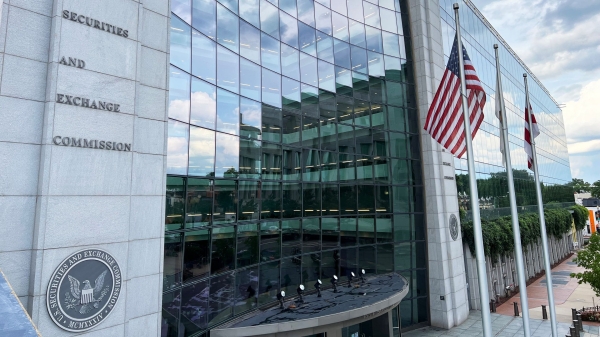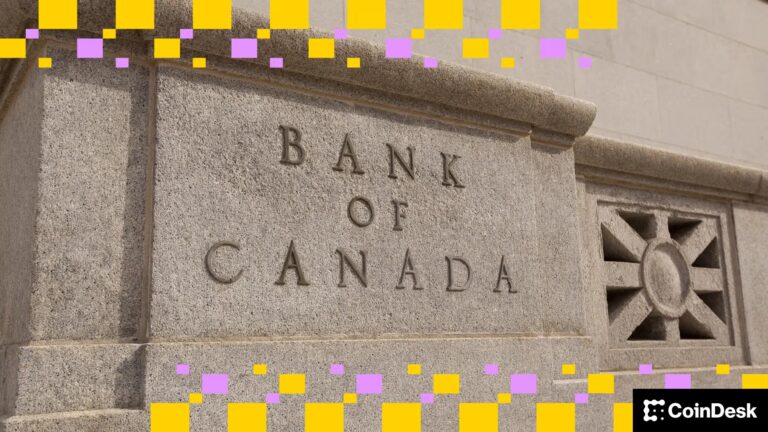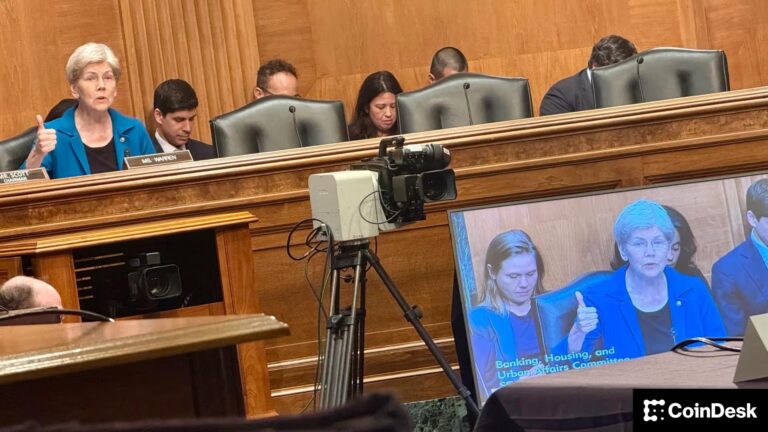U.S. SEC Backs Off Crypto Dealer Fight, Continues Resetting Industry Approach
The U.S. Securities and Exchange Commission has been overhauling its digital asset legal strategy, and this week it dropped an appeal of the crypto dealer rule.
Updated Feb 20, 2025, 7:06 p.m. UTCPublished Feb 20, 2025, 4:01 p.m. UTC

What to know:
- The U.S. Securities and Exchange Commission has thrown in the towel on its fight over trying to extend a "dealer" definition over much of the crypto sector.
- The move to drop its appeal fits with the SEC's changing legal approach to digital assets as the regulator adjusts to a friendlier stance.
Already losing its legal fight with the crypto industry over a rule that would have expanded the definition of regulated securities dealers to include a wide array of digital assets operations, the U.S. Securities and Exchange Commission has given up its appeal.
The SEC has been in reset mode on its courtroom entanglements with crypto issues as the leadership elevated by President Donald Trump has been reversing years of the agency's adversarial stance. The latest move was to formally drop the appeal in a case in which the Blockchain Association and Crypto Freedom Alliance of Texas sued the SEC and a Texas federal judge agreed that the regulator "exceeded its statutory authority."
"With new leadership at the agency leading to today’s final dismissal, we’re looking forward to productive conversations between industry and the SEC moving forward – and a brighter future for digital assets in the United States,” said Blockchain Association CEO Kristin Smith, in a statement.
The rewritten dealer rule was one of the agency's major efforts at crypto rulemaking under the tenure of former chairman Gary Gensler, and it was crafted with the agency's longtime stance in mind that existing laws were sufficient to handle the oversight of the digital assets space. The industry's position was that the rule made untenable demands on decentralized finance (DeFi) and also roped in crypto traders who didn't offer dealer services.
“The court found that the commission’s rule would classify nearly any person who buys and sells securities as a 'dealer,' extending beyond its statutory authority," an SEC spokesman said on Thursday. "We dismissed the appeal because continuing to pursue it had the risk of reducing liquidity in the Treasury markets, making them more volatile, and increasing debt for taxpayers.”
Since being installed as the SEC's acting chairman, Mark Uyeda, has begun to aggressively overhaul the agency's senior staff and its legal approach to the crypto sector. He's set to be replaced whenever Trump's permanent pick, Paul Atkins, can be confirmed by the U.S. Senate, though Atkins is expected to continue in the same path.
Earlier this month, the SEC also sought to pause its enforcement fight with Binance over the agency's accusations of securities violations so the matter could be resolved in another way.
Read More: U.S. SEC Loses Crypto Lawsuit Over 'Dealer' Definition That Pushed Into Crypto
UPDATE (February 20, 2022, 19:06 UTC): Adds comment from the Securities and Exchange Commission.



